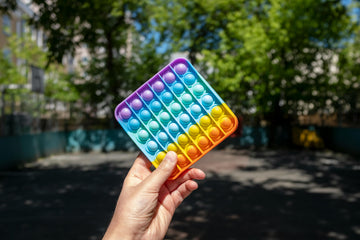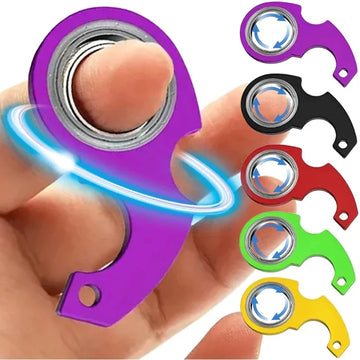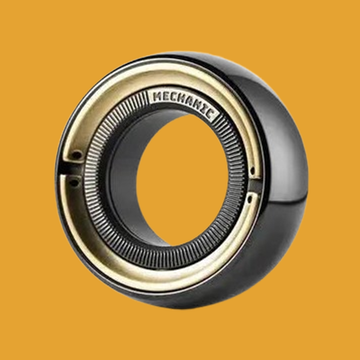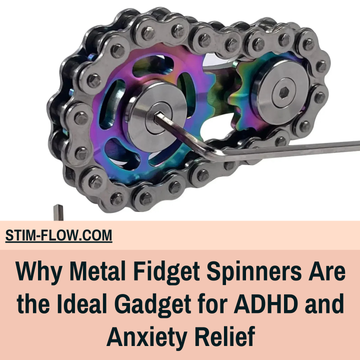Breaking bad habits and building self-control can feel like climbing a steep hill. Whether it’s biting nails, excessive scrolling, or snacking out of boredom, many of us grapple with habits that seem impossible to shake. The good news is that sensory toys can offer a surprising solution. In this article, I’ll explore how these simple yet effective tools can empower individuals to overcome bad habits and develop stronger self-discipline.

The Science Behind Bad Habits
Bad habits are often tied to repetitive behaviors that soothe discomfort, stress, or boredom. When we engage in these actions, our brain releases dopamine—a chemical associated with pleasure—reinforcing the habit loop. The challenge lies in rewiring these deeply ingrained patterns and redirecting our focus toward healthier alternatives.
Sensory toys come into play by acting as a positive distraction, helping us break the cycle of negative behaviors while promoting mindfulness and self-control.
How Sensory Toys Support Habit-Breaking
1. Redirecting Idle Hands
Many bad habits, like nail-biting or skin-picking, stem from the need to keep our hands busy. Sensory toys provide a tactile outlet, giving your hands something to do that doesn’t reinforce destructive behaviors.
By engaging in repetitive motions like squeezing, spinning, or stretching a sensory toy, you can satisfy the urge to fidget without resorting to your usual habits. Over time, this redirection helps retrain the brain and reduces dependency on the old behavior.
2. Enhancing Focus and Awareness
Sensory toys are excellent tools for improving focus. When you’re more aware of your actions and surroundings, it becomes easier to catch yourself in the act of engaging in a bad habit.
Using a sensory toy during moments of restlessness helps ground you in the present moment. This increased mindfulness allows you to pause and choose a healthier response instead of defaulting to old patterns.
3. Soothing Stress and Anxiety
Stress and anxiety are often triggers for bad habits. Whether it’s overeating or compulsively checking your phone, these habits act as coping mechanisms for underlying tension.
Sensory toys offer a calming effect by engaging multiple senses—touch, sight, and sometimes even sound. This multisensory stimulation helps lower stress levels and makes it easier to resist the impulse to fall back into destructive behaviors.
Building Self-Control Through Sensory Toys
1. Reinforcing Positive Behaviors
Self-control is like a muscle—it strengthens with consistent practice. Sensory toys encourage the development of this “muscle” by teaching delayed gratification.
For example, instead of reaching for a cigarette or snack, using a sensory toy can help bridge the gap between the impulse and the action. With time, you’ll find it easier to make conscious decisions and resist temptations.
2. Promoting Habit Replacement
Psychologists suggest that replacing a bad habit with a healthier one is more effective than simply trying to stop the habit altogether. Sensory toys serve as an excellent replacement activity because they fulfill the need for engagement while fostering relaxation and focus.
3. Encouraging Consistency
Breaking habits and improving self-control requires daily effort. Sensory toys are portable and convenient, making them an easy addition to your routine. Whether you’re at work, commuting, or relaxing at home, having a sensory toy on hand ensures you’re prepared to combat urges whenever they arise.
Tips for Incorporating Sensory Toys into Your Routine
- Experiment with Different Toys . Not all sensory toys are created equal. Test out different types—like stress balls, tactile mats, or spinners—to find what works best for you.
- Pair with Mindfulness Techniques. Combine sensory toys with mindfulness exercises, such as deep breathing or visualization. This combination amplifies their effectiveness in calming your mind and redirecting your focus.
- Track Your Progress. Celebrate small victories as you reduce your reliance on bad habits. Keeping a journal can help you recognize patterns and stay motivated.
The Long-Term Benefits of Sensory Toys
Breaking bad habits and improving self-control isn’t just about the immediate changes—it’s about creating a foundation for long-term well-being. Sensory toys can help cultivate healthier coping mechanisms, improve focus, and reduce stress, leading to better mental health and productivity over time.
When used consistently and intentionally, these tools can become valuable allies in your journey toward self-improvement.
Final Thoughts
We all have habits we’d like to break, but the path to change doesn’t have to be overwhelming. Sensory toys provide a simple, effective way to build self-control and redirect unproductive behaviors. By integrating these tools into your daily life, you can create a healthier, more mindful approach to managing stress and breaking free from the habits that hold you back.
Take it one step at a time, and remember: every small effort counts toward a bigger change. You’ve got this!





